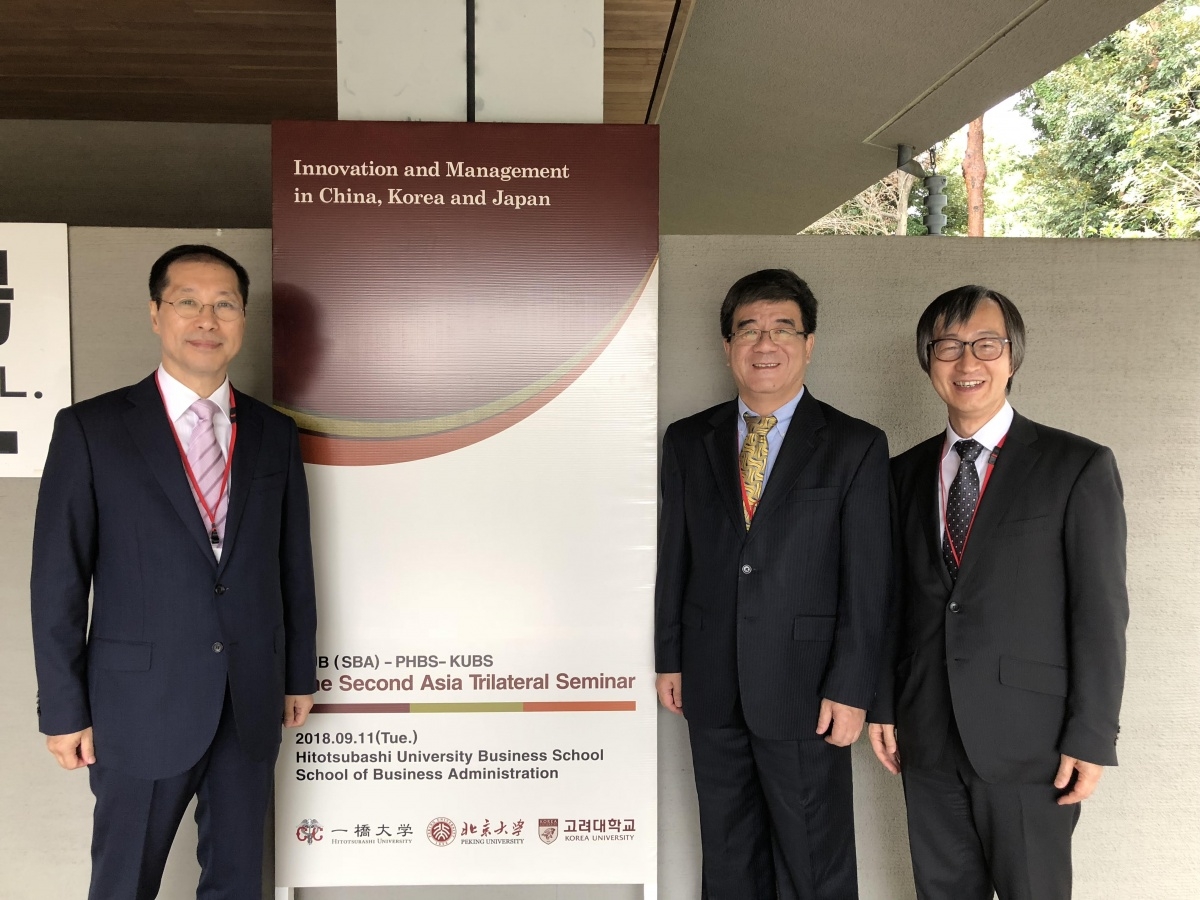News
KUBS News
KUBS Futurum 2018 Asia Tri-Lateral Seminar
KUBS Futurum Session 2
With Business Administration Scholars in Korea∙China∙Japan
Academic exchange for resolutions that firms are facing
On September 11th (Tue), ‘KUBS Futurum 2018 Asia Tri-lateral Seminar’ was held at Hitotsubashi University in Tokyo, Japan. The seminar was co-hosted by three universities: Korea University Business School, Peking University HSBC Business School (PHBS), Hitotsubashi University Faculty of Commerce and Management.

(From left) KUBS Dean Soo Young Kwon, PHBS Dean Wen Hai, Hitotsubashi University Faculty of Commerce and Management Dean Toyohiko Hachiya
The Asia Tri-lateral Seminar is the second session of ‘KUBS Futurum’, which is held in the middle of every year. The topic of the seminar was ‘Korea, China, and Japan - Innovation and Management’.
In the seminar, participants first attended presentations and had a discussion afterwards. The presentation session was run by three professors: Professor Cuifen Weng from PHBS, Professor Masaru Karube from Hitotsubashi University, and Professor Pyun, Ju Hyun from KUBS. Presentations were followed by an open discussion hosted by professor Insik Jeong from KUBS and professor Fanmin Kong from PHBS.
In his presentation, professor Weng focused on ‘China’s Innovation Challenge’ where he highlighted institutional factors of Chinese firms’ innovation based on empirical analysis. Professor Weng argued that “According to the empirical analysis, the government’s constraints placed on business increase the probability of a business adopting an innovative strategy. On the other hand, legal and financial constraints on business are prone to lower the probability.”
The second presentation by Professor Karube from Hitotsubashi University emphasized on ‘How audit companies deal with financial statement manipulation’ with an analysis of the Toshiba Accounting Scandal in 2015. Professor Karube explained that “specialized institutions have strict control over financial reporting for the quality assurance. Penalties may apply for the expert in charge in case of audit failures.” Professor Karube continued, “There are also few resolutions for intentional fraud or in case of a weak internal control. However, it is hard to exercise control to the periphery of the market or that of core organization.”
Professor Pyun, Ju Hyun from KUBS had the final presentation in the seminar where he focused on ‘Does a falling real exchange rate increases R&D investment?’ with examples of Korean firms’ internal data sources. Professor Pyun argued that “Fluctuations of exchange rates do have an impact on the level of firm’s R&D investment. However, the level of impact varies depending on firms’ internal factors.”
At the end of the seminar, KUBS Dean Soo Young Kwon commented that “The Asia Tri-lateral Seminar is an academic event that allows the three universities to exchange thoughts and discuss for resolutions that firms are facing. It is also an event that the three major universities in Asia take an academic initiative in academic advancement. Thank you for your cooperation and participation in the seminar, I look forward to upcoming events.”


